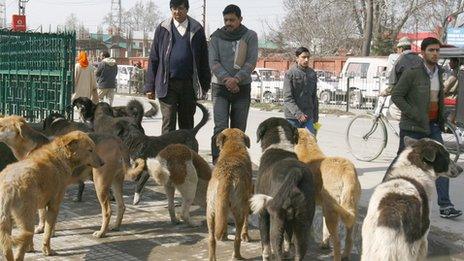India dog cull causes controversy and heartache
- Published
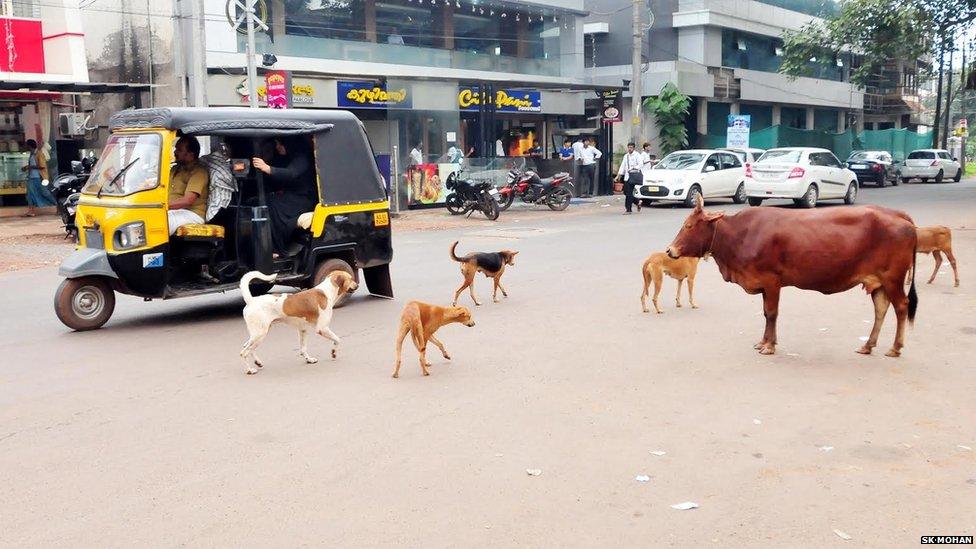
There are thought to be more than 250,000 stray dogs in Kerala
A growing stray dog problem in India's southern states of Kerala and Tamil Nadu has inspired extreme measures - and tragic results. Ashraf Padanna and Lakshman Kuchi report.
A family in Kovalam, near Chennai (Madras) in Tamil Nadu are mourning the death of Tokki, their five-year-old dog who was shot in early August after the official village council ordered the killing of strays in the area.
"Tokki had slipped out of the house and gone to the beach when I heard shots," R Mohan, a fisherman, told BBC Hindi.
Mr Mohan says he ran outside shouting for the shooting to stop, but Tokki, who had clearly been mistaken for a stray, was hit by a bullet and collapsed near the house.
"He may have still escaped if he was a little faster," he said.
The family believes that the village council president Mr Janakiraman, is to blame for their dog's death and want him punished. Mr Janakiraman says the decision to kill dogs was taken collectively by villagers.
Most villagers in fact, have expressed their support for the culling of stray dogs, alleging that they regularly attack children. Around 15 dogs are believed to have been shot, and their carcasses thrown into the sea.
'A menace'
Mr Mohan's daughter Priyanka, 18, said the family have not been able to eat or sleep properly since Tokki's death. Her 11-year-old sister who had been inconsolable had only just gone back to school, she added.
"Tokki was like our son, as we do not have any male children. Ever since I found Tokki as an abandoned pup, we have considered him a family member," Mr Mohan said.
Members of Blue Cross, an animal welfare group, rushed to the village when they heard about the shootings and registered a police case against the village council president and a man believed to have been hired by the council to carry out the shootings.
But soon afterwards, around 200 villagers turned up at the police station, demanding that the case be withdrawn. They alleged that the decision to shoot the dogs had been taken only because their complaints against the growing menace of stray dogs had gone unheard.
Dawn Williams of Blues Cross admitted that stray dogs were a serious concern, but said that rubbish dumps in the area were to blame.
"The large amounts of garbage give dogs plenty of food, which is why they multiply so rapidly," he said.
Authorities are worried. More than 100,000 people suffered dog bites in Tamil Nadu last year. This year 60,000 people had been bitten by July.
The government is now planning to set up 500 sterilisation centres in the state to bring down the canine population.
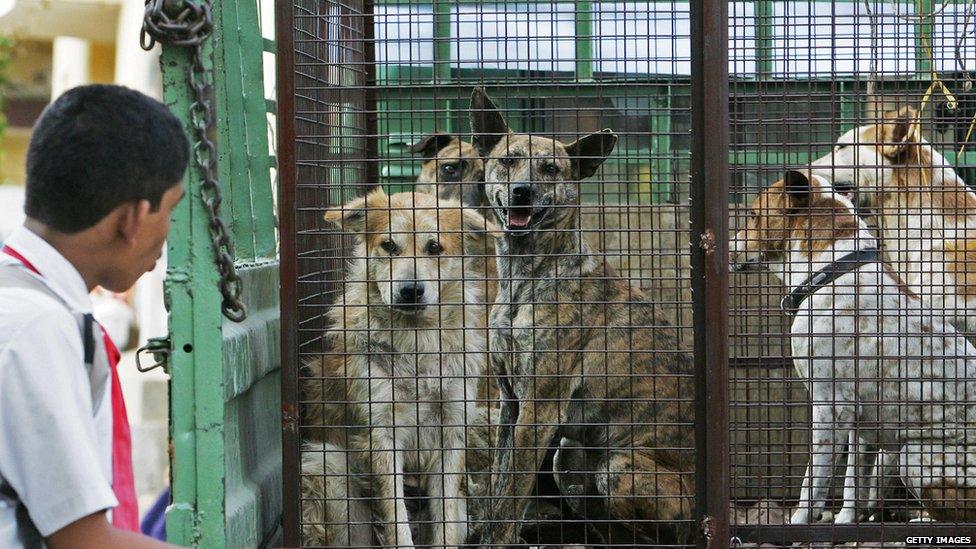
Scores of stray dogs have been killed in southern India in recent months
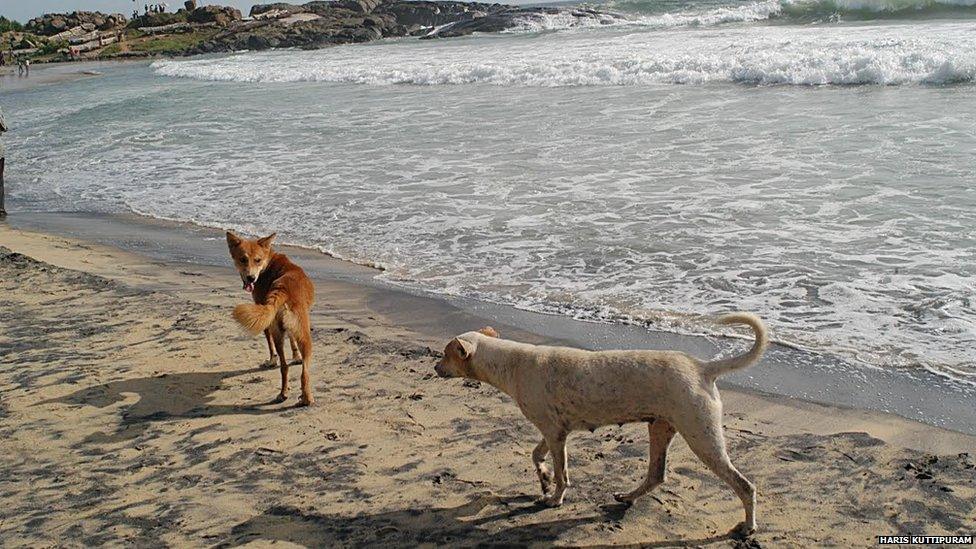
More than 20,000 people suffered from dog bites in Kerala last year
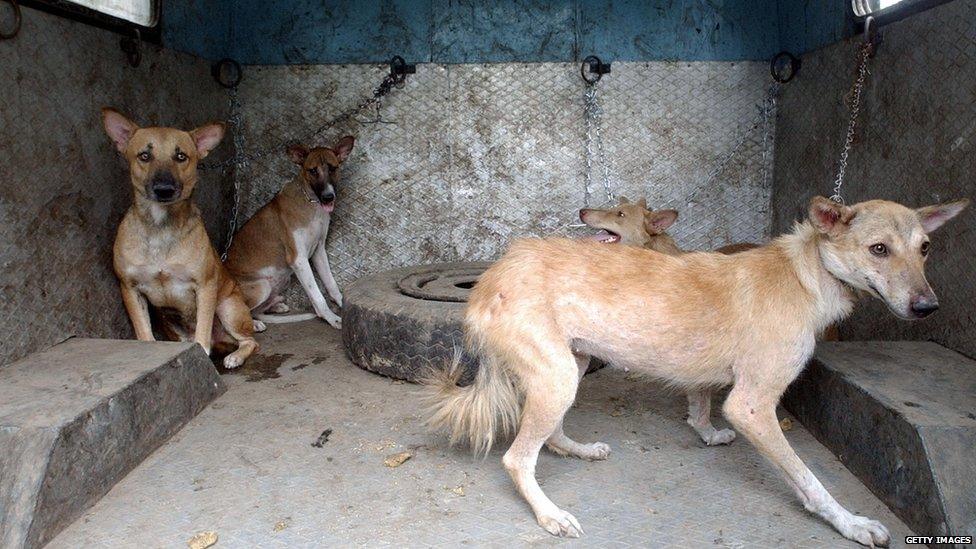
Stray dogs are a problem in India, but animal rights groups says rubbish is to blame
Separately, in Kannur district in the neighbouring state of Kerala, dog catchers hired by residents killed 40 stray dogs by allegedly injecting them with potassium cyanide.
Authorities say the villagers killed the dogs without their permission.
But animal rights activists said the dogs, including puppies, were administered potassium cyanide with the support of officials.
"Officials threatened us when we tried to prevent the mass killings," activist Dr Sushma Prabhu told reporters.
The villagers say they were forced to resort to such a step after several people suffered dog bites.
Sterilisation campaign
"The total population of the village is around 39,000. But we have 4,000 stray dogs here," local village council president N Ramakrishnan told the BBC.
"The villagers reacted after eight school going children, all below 12, were attacked."
The action comes even as Kerala's chief minister called an all-party meeting to find ways to address Kerala's stray dog problem.
Local officials say there are a million dogs in Kerala and almost a third of them are strays. More than 23,000 people in the state were bitten by dogs last year, and nearly half of them contracted rabies.
Some 50 squads will be deployed to sterilise the stray dogs over three years, they say.
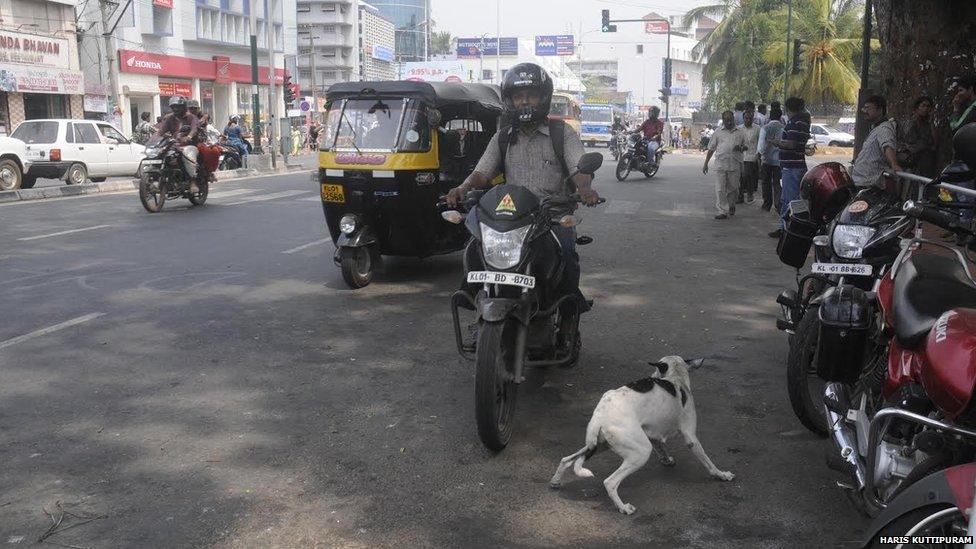
Authorities plan to sterilise the stray dogs
There are also suggestions from human rights commission and panchayat (council) authorities to export dog meat.
Whether regional authorities have the right to order the killing of stray dogs is currently a matter of legal dispute, external, and India's Supreme Court is expected to make a decision on the matter in September.
This has in turn led to a social media movement titled Boycott Kerala, external, which aims to hit the tourism-dependant state where it hurts most. The tag is being used to target tourist information accounts, such as the Kerala Tourist Board.
"Come visit Kerala and see how man's best friend is treated," reads one typical post, accompanied with an image of slaughtered dogs.
"Boycott Kerala tourism now that the government is brutally killing street dogs," says another. An online petition calling for the dogs to be saved has received more than 50,000 signatures.
"The tourism season is yet to begin, but we have been witnessing increased arrivals compared to last year even during the monsoon. I don't think isolated campaigns will have any impact on the tourists," AP Anil Kumar, the state's tourism minister, told the BBC.
"We are animal-friendly, pet-loving people".
- Published13 March 2012
